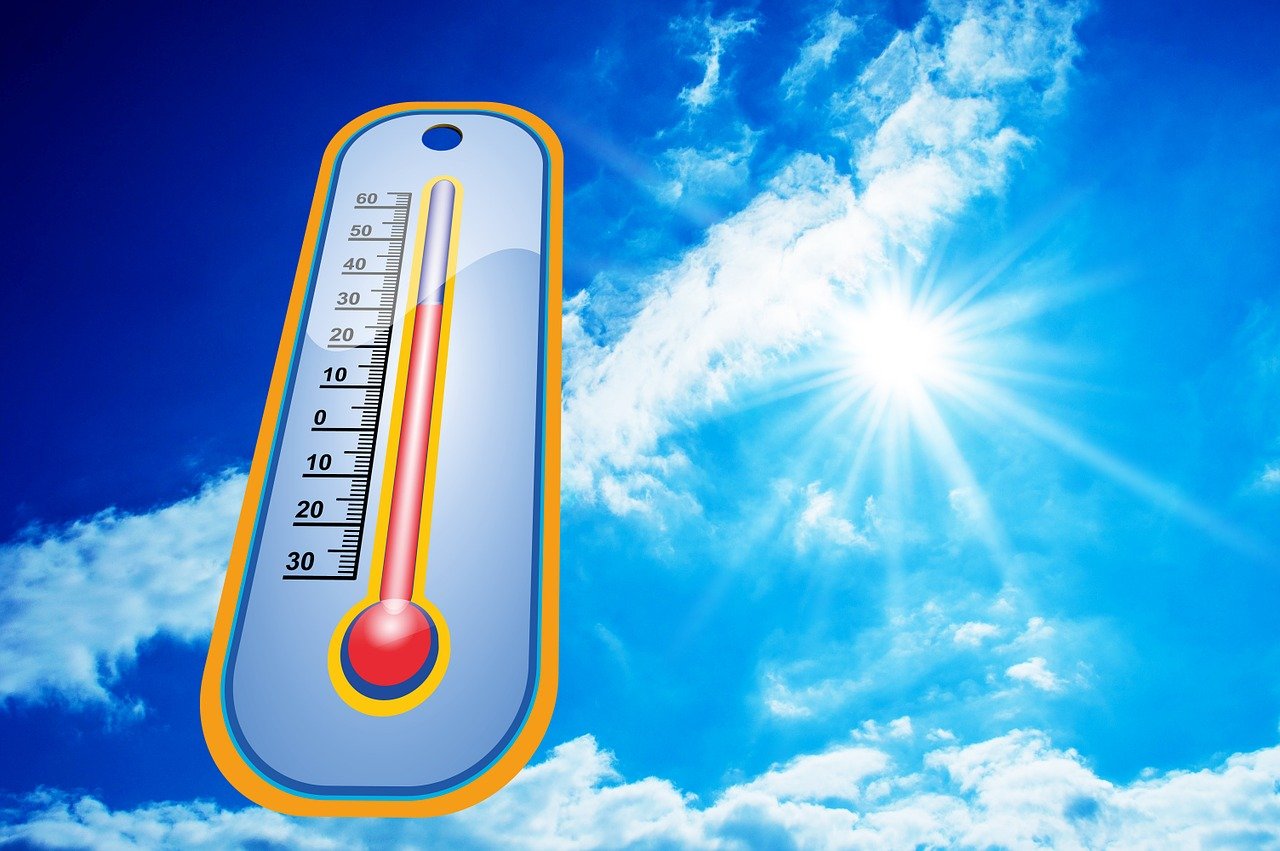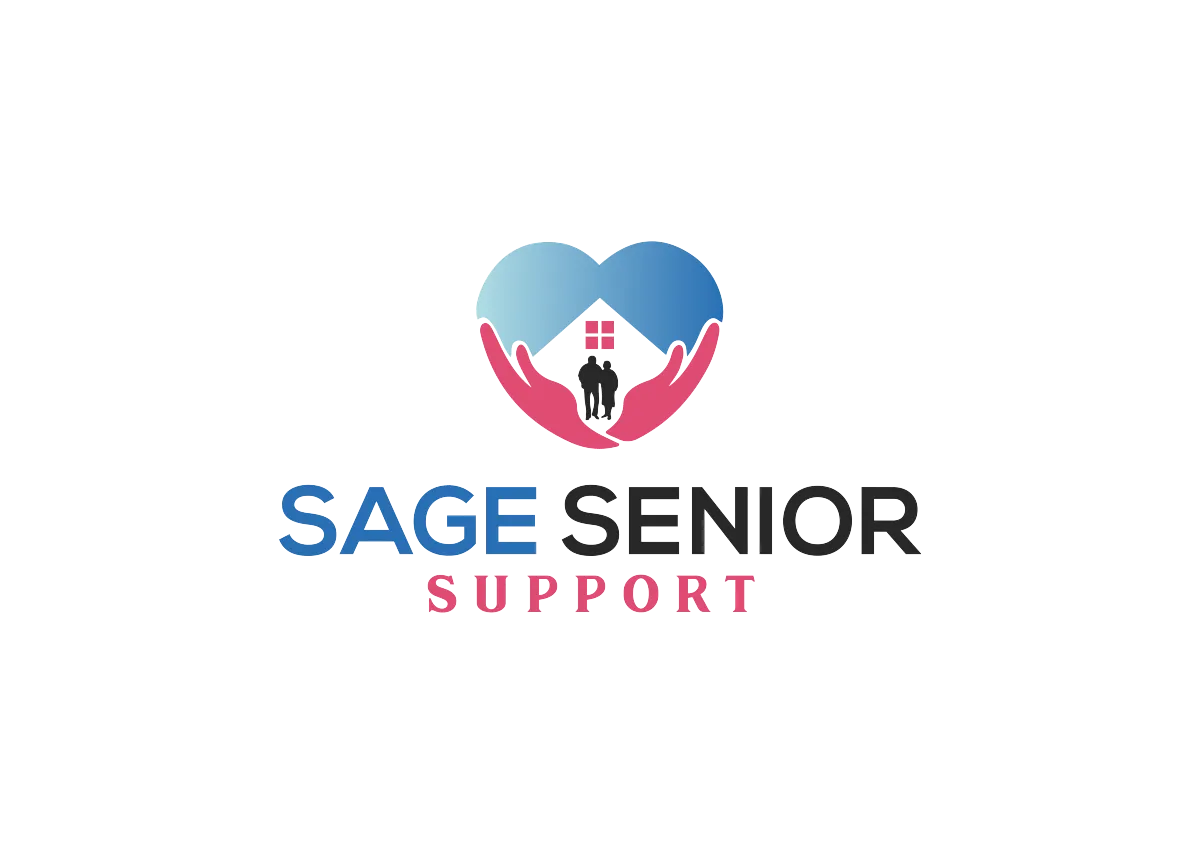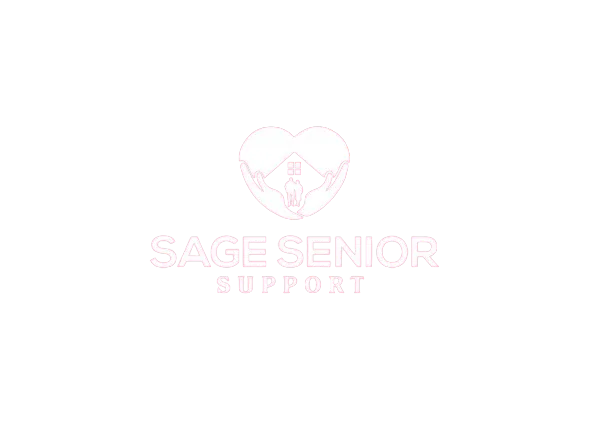
Senior Safety in the Heat: What Every DFW Caregiver Needs to Know
DFW caregivers: Seniors face dangerous heat risks due to age-related physiological changes, medications, and chronic conditions. Watch for fatigue, dizziness, and excessive sweating—early warning signs that can quickly become emergencies. Create cool environments and ensure proper hydration to protect vulnerable seniors.
Key Takeaways:
Seniors (65+) face heightened vulnerability to heat-related illnesses due to age-related physiological changes that reduce their ability to regulate body temperature.
Common medications and chronic health conditions significantly increase a senior's risk during DFW's extreme summer temperatures.
Early warning signs of heat-related illness in seniors include fatigue, dizziness, and excessive sweating, which can quickly progress to a medical emergency if not addressed.
Creating a cool home environment and maintaining proper hydration are essential preventive measures for seniors during heat waves.
Sage Senior Support provides specialized resources to help DFW caregivers protect vulnerable seniors during extreme heat conditions.
Why DFW Seniors Face Life-Threatening Risks During Heat Waves
The Dallas-Fort Worth metroplex is currently experiencing dangerous heat conditions with temperatures climbing into the upper 90s and heat index values soaring to 105-110°F. While uncomfortable for everyone, these conditions pose a potentially life-threatening situation for seniors. Over 80% of heat-related deaths in the United States occur among adults aged 65 and older, making this demographic particularly vulnerable during North Texas summers.
Sage Senior Support specialists have seen firsthand how quickly heat can affect older adults in our community. You can find more resources for managing senior safety during extreme temperatures on the Sage Senior Support blog. The combination of DFW's intense summer heat, high humidity, and urban heat island effect creates a perfect storm of risk factors for our senior population.
Understanding Heat's Impact on Senior Bodies
How Aging Changes Heat Response
As we age, our bodies undergo natural physiological changes that significantly impact our ability to handle heat. Seniors experience a reduced ability to regulate body temperature compared to younger adults, creating an inherent vulnerability during heat waves. This isn't simply a matter of comfort—it's a crucial biological limitation that can quickly lead to medical emergencies.
The key physiological changes that affect seniors include:
Reduced sweating capacity, limiting the body's natural cooling mechanism
Diminished thirst sensation, often leading to inadequate fluid intake even when dehydrated
Less efficient circulation that struggles to move blood to the skin for cooling
Decreased ability to acclimate to sudden temperature changes, particularly problematic during DFW's temperature swings
These changes mean that an older person's body can't cool itself as effectively, allowing internal temperature to rise to dangerous levels more quickly than in younger adults. Even healthy seniors without medical conditions face these age-related challenges, making heat awareness essential for all older adults in DFW.
The Critical Role of Pre-existing Health Conditions
Chronic health conditions, common among seniors, can dramatically increase vulnerability during heat waves. These conditions create a double burden—not only do they impair the body's ability to cool itself, but heat stress can also worsen the underlying condition.
Conditions that particularly increase heat risks include:
Cardiovascular diseases, which limit the heart's ability to increase output during heat stress
Respiratory conditions like COPD, making breathing more difficult in hot, humid air
Diabetes, which can affect blood vessel function and sweating
Kidney and liver diseases, reducing the body's ability to maintain fluid and electrolyte balance
Neurological conditions, including dementia, which may prevent recognition of heat danger signs
Medications That Increase Heat Vulnerability
Many prescription and over-the-counter medications commonly taken by seniors can significantly increase susceptibility to heat-related illness. This creates a hidden risk factor that many caregivers and seniors themselves may not recognize until problems arise.
Medications that can increase heat sensitivity include:
Diuretics (water pills) like hydrochlorothiazide or furosemide can significantly increase dehydration risk
Antihistamines and decongestants such as diphenhydramine (Benadryl) or pseudoephedrine may reduce sweating ability
Beta-blockers including metoprolol or atenolol can reduce blood flow to the skin
Antipsychotics and antidepressants like olanzapine or amitriptyline may interfere with temperature regulation
ACE inhibitors such as lisinopril may cause excessive loss of sodium through sweating
Seniors taking multiple medications face compounded risks, as drug interactions can further impair the body's cooling mechanisms. A medication review with a healthcare provider before summer heat arrives is a proactive step all DFW seniors should consider.
Recognizing Heat-Related Illness Before It's Too Late
1. Early Warning Signs That Demand Attention
Heat-related illnesses develop on a spectrum, with early intervention being crucial to prevent progression to more serious conditions. Being vigilant about subtle changes can save lives.
Watch for these early warning signs in seniors:
Unusual fatigue or weakness
Headache, particularly if sudden or severe
Dizziness or lightheadedness
Excessive sweating or hot, dry skin
Muscle cramps, especially in the legs or abdomen
Nausea or loss of appetite
Increased irritability or confusion
Rapid breathing or pulse
These symptoms may appear mild initially but can escalate quickly, especially in seniors with pre-existing conditions. What might seem like normal tiredness could be the first sign of heat exhaustion.
2. The Progression from Heat Exhaustion to Heat Stroke
Heat exhaustion occurs when the body struggles to cool itself, characterized by heavy sweating, cool and clammy skin, weakness, and a fast but weak pulse. If left untreated, heat exhaustion can rapidly progress to heat stroke—a life-threatening emergency.
The key differences between heat exhaustion and heat stroke include:
Heat ExhaustionHeat Stroke (Medical Emergency)Heavy sweatingHot, red, dry skin (sweating often stops)Cold, pale, clammy skinBody temperature above 103°FFast but weak pulseRapid and strong pulseTiredness, weaknessConfusion, disorientationNausea, vomitingPossible unconsciousnessNormal or slightly elevated temperatureHigh body temperature (103°F or higher)
The transition from heat exhaustion to heat stroke can happen quickly, sometimes within minutes. The most concerning aspect of this progression is that once body temperature rises to heat stroke levels, damage to internal organs and the brain can occur rapidly.
3. When to Call 911 Immediately
Heat stroke is a genuine medical emergency requiring immediate professional intervention. Call 911 without delay if you observe any of these signs in a senior:
Body temperature of 103°F or higher
Hot, red, dry skin (not sweating despite the heat)
Rapid, strong pulse
Confusion, disorientation, or unusual behavior
Seizures
Loss of consciousness
Cessation of sweating after having been sweating
While waiting for emergency services, move the person to a cooler location, apply cool cloths to the skin, and fan them vigorously. Do not give an unconscious person anything to drink.
Essential Prevention Strategies That Work
Creating a Cool Home Environment With and Without AC
Air conditioning is the most effective protective factor against heat-related illness and death during extreme heat. However, not all DFW seniors have access to reliable air conditioning. Here are strategies for both scenarios:
With Air Conditioning:
Maintain your AC system with annual professional check-ups before summer arrives
Set the thermostat between 74-78°F during heat waves
Use ceiling fans to improve air circulation and cooling efficiency
Close blinds and curtains during the day to block heat from intense Texas sunlight
Seal gaps around doors and windows to keep cool air in
Without Air Conditioning:
Create cross-ventilation by strategically opening windows when cooler outside (typically early morning or late evening in DFW)
Use fans to circulate air (note: when indoor temperatures exceed 95°F, fans alone won't prevent heat illness)
Block sun with light-colored curtains or window reflectors
Use a dehumidifier if available to reduce humidity, which is particularly helpful in North Texas summers
Create a cool room by closing off one room and focusing cooling efforts there
Visit air-conditioned public spaces like libraries, malls, or senior centers during peak heat hours
During extreme heat waves, seniors without functioning air conditioning should strongly consider temporarily staying with family, friends, or at cooling centers, as indoor temperatures can quickly become dangerous.
Hydration Guidelines Beyond 'Drink More Water'
Proper hydration is crucial for seniors during heat waves, but simply saying "drink more water" isn't enough. As we age, our thirst sensation diminishes, meaning many seniors don't feel thirsty even when dehydrated. This makes scheduled, intentional hydration essential.
Follow these specific hydration guidelines:
Drink before feeling thirsty – by the time thirst appears, mild dehydration has already begun
Aim for 6-8 glasses (48-64 ounces) of fluid daily, increasing during heat waves
Set a schedule – drink a full glass of water with medications, before and after activities, and at meal times
Use visual reminders like water bottles marked with time indicators
Include hydrating foods like watermelon, cucumbers, oranges, and strawberries
Monitor hydration status by checking urine color – pale yellow indicates good hydration
For seniors with health conditions like heart failure or kidney disease who may be on fluid restrictions, consult with healthcare providers about adjusting fluid intake during extreme heat.
Appropriate Clothing and Accessories for Maximum Protection
What seniors wear during heat waves can significantly impact their body temperature. The right clothing choices act as a crucial barrier between their vulnerable bodies and the extreme DFW heat.
Optimal clothing choices include:
Loose-fitting garments that allow air circulation around the body
Light-colored fabrics that reflect rather than absorb the intense Texas heat
Breathable natural materials like cotton and linen that wick moisture away
Wide-brimmed hats that provide facial and neck shade
Lightweight, full-coverage options that protect from direct sun while allowing ventilation
Accessories that enhance protection:
UV-blocking sunglasses to protect sensitive eyes from intense DFW sunlight
Broad-spectrum sunscreen (SPF 30+) applied regularly, even for brief outings
Cooling towels or bandanas that can be dampened and worn around the neck
Light, breathable socks with comfortable shoes to prevent overheating
For DFW seniors who struggle with mobility or dexterity, opt for easy-to-don clothing with minimal buttons or complicated closures, making it simpler to adjust clothing as temperatures change throughout the day.
Safe Activity Planning During North Texas Heat Waves
Smart scheduling and activity modifications are essential to reduce heat exposure risks for seniors. The intensity of North Texas summer heat demands thoughtful planning for any outdoor activities.
Key timing considerations:
Schedule necessary outdoor activities before 10 AM or after 6 PM when temperatures are typically lower
Track heat advisories and warnings from the National Weather Service's DFW office
Allow for acclimatization by gradually increasing outdoor time as summer progresses
Build in extra time for outdoor tasks to allow for frequent breaks
Activity modifications:
Move exercise indoors to air-conditioned spaces during heat waves
Switch to low-intensity activities like gentle stretching or chair exercises
Consider water-based exercises in indoor pools if available
Postpone non-essential outdoor activities when temperatures exceed 95°F
If outdoor exposure is unavoidable, alternate between sun and shade every 15-20 minutes
For many seniors, social isolation increases during heat waves as they remain indoors. Caregivers should help arrange alternative indoor social activities to maintain mental well-being while avoiding heat exposure.
DFW Resources Every Caregiver Should Know
1. Cooling Centers in Dallas, Denton, and Tarrant Counties
Cooling centers provide air-conditioned spaces for temporary relief during extreme heat events. They're particularly vital for seniors without functioning air conditioning at home. The DFW metroplex offers numerous cooling center options:
Dallas County:
The Salvation Army locations throughout Dallas County, including the Garland location (451 W. Avenue D) open Monday-Friday from 9 a.m. to 5 p.m.
Dallas recreation centers and libraries during regular business hours
The Senior Source's "Beat the Heat" campaign (contact 214-525-6157) provides information about cooling centers and potential AC unit assistance
Tarrant County:
Worth Heights Community Center in Fort Worth (3551 New York Ave)
Arlington Salvation Army (712 West Abram Street, Monday-Friday 12 p.m. - 6 p.m.)
Meals On Wheels of Tarrant County Client Assistance program (817-258-6433) can provide fans and AC units to eligible seniors
Denton County:
Denton Community Shelter (909 N. Loop 288, open 8 a.m. – 7:30 p.m., 7 days a week)
Salvation Army Denton (1508 E. McKinney St., open 7 a.m. – 9 p.m., 7 days a week)
Denton Senior Center (509 N. Bell Ave., open 8 a.m. – 8 p.m., Mon - Fri)
Lewisville Public Library (1197 West Main Street, open 8 a.m. – 5 p.m., 7 days a week)
Most cooling centers are open during standard business hours, with extended hours often implemented during extreme heat events. Transportation to cooling centers can be arranged through local senior service agencies or public transportation with senior discounts.
2. Financial Assistance Programs for Air Conditioning
Financial concerns should never prevent seniors from using air conditioning during dangerous heat. Several programs can help offset cooling costs:
Low Income Home Energy Assistance Program (LIHEAP): Federally-funded program that helps eligible low-income households with energy costs, including cooling expenses. Call 1-866-674-6327 for information.
Comprehensive Energy Assistance Program (CEAP): Texas-specific program providing utility assistance to low-income households, with priority given to elderly individuals. This program covers all 254 counties of Texas.
Weatherization Assistance Program: Helps improve home energy efficiency to reduce utility costs while enhancing comfort and safety.
Local utility assistance: The City of Garland Customer Assistance Program (972-205-2671) and Dallas County Comprehensive Energy Assistance Program (214-819-1848) can provide free air conditioning units to qualified applicants.
Application requirements typically include proof of income, residence, and identity. The application process can be initiated through local Area Agencies on Aging or by calling 211 for referrals. Many programs have expedited assistance available for seniors during extreme heat events.
3. Community Support Networks and Check-in Systems
Regular check-ins are critical during heat waves, as isolated seniors may not recognize dangerous symptoms or be able to seek help. DFW offers several formal and informal support networks:
Area Agency on Aging Care Coordination: Provides regular wellness checks for enrolled seniors.
Senior Call Check Programs: Free telephone check-in services that call seniors daily.
Meals on Wheels: Provides not only nutritional support but also regular in-person wellness checks. In Tarrant County, they also offer emergency fan and AC unit distribution (contact 817-258-6433).
Faith-based outreach programs: Many local churches and religious organizations coordinate volunteer check-ins for elderly members.
The 211 hotline (United Way): Connects individuals to various services including utility assistance and heat relief programs 24/7/365.
Healthcare providers, especially home health agencies serving DFW seniors, often provide additional resources and monitoring during extreme heat events.
Your Action Plan: Implementing These Tips Today
Protecting seniors from heat-related illness requires proactive planning rather than reactive response. Here's how to implement these strategies immediately:
Assess current vulnerability: Evaluate medication lists, home cooling capacity, and mobility limitations that might increase risk.
Create a personalized heat safety plan: Document specific strategies tailored to the senior's living situation, health status, and available resources.
Prepare the home environment: Install window coverings, ensure AC functionality, and create cooling stations within the home.
Establish a buddy system: Identify specific people who will check in at least twice daily during heat waves and know the signs of heat-related illness.
Program emergency contacts: Ensure phone numbers for healthcare providers, emergency services, and family members are readily accessible.
Stock up on supplies: Gather appropriate clothing, hydration options, and cooling tools before extreme heat arrives.
Practice recognition: Make sure both seniors and caregivers can identify the early warning signs of heat-related illness.
By implementing these strategies proactively, DFW caregivers can significantly reduce the risks that extreme heat poses to vulnerable seniors. Remember that prevention is always easier and more effective than dealing with a heat-related emergency.
Sage Senior Support offers comprehensive resources for caregivers managing senior health and safety during extreme weather conditions throughout the Dallas-Fort Worth metroplex.


